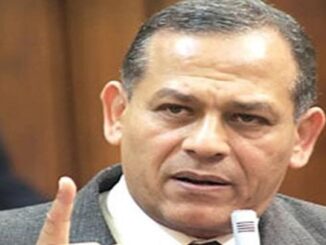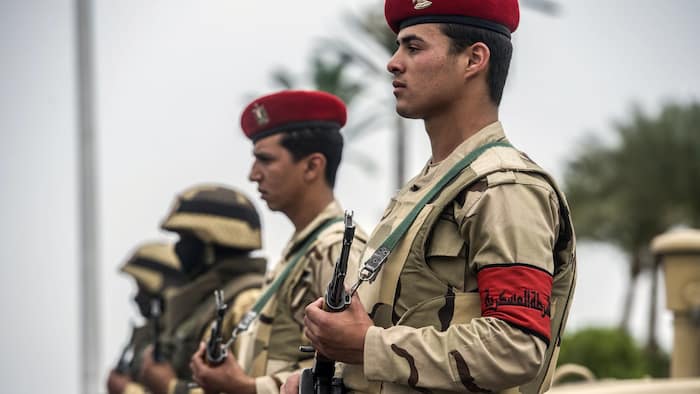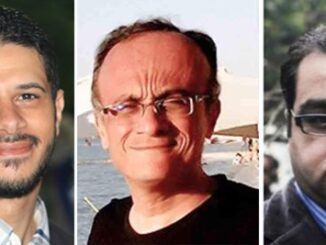
Enforced Disappearance has become an obvious phenomenon in Egypt. Human Rights organizations have documented many cases where activists were abducted by the Egyptian security forces. Even foreigners were targeted in Egypt. On the fifth anniversary of the January Revolution, the Italian Ph.D. Student Giulio Regeni disappeared in Cairo. A week later, he was found tortured and murdered with the signs of the Egyptian security forces that are known for using torture to obtain information or coerced confessions from the detainees. Regeni’s family has accused the Egyptian security forces of being behind their son’s murder, an accusation that the Egyptian authorities denied. However, human rights groups claim that this was far from an isolated case. The Egyptian Commission for Rights and Freedoms says it documented 544 cases of enforced disappearance between August 2015 – April 2016 although Egyptian authorities maintain they are being “smeared”. They say, “About half of those who disappear reappear in prison,” they added, “the whereabouts of the other half remains unknown.” The BBC asked the Egyptian authorities in an interview, but the Ministry of Interior told them “There is no enforced disappearance in Egypt and these are smear campaigns.”
However, human rights groups claim that this was far from an isolated case. The Egyptian Commission for Rights and Freedoms says it documented 544 cases of enforced disappearance between August 2015 – April 2016 although Egyptian authorities maintain they are being “smeared”. They say, “About half of those who disappear reappear in prison,” they added, “the whereabouts of the other half remains unknown.” The BBC asked the Egyptian authorities in an interview, but the Ministry of Interior told them “There is no enforced disappearance in Egypt and these are smear campaigns.”
The BBC Channel has released a documentary on the enforced disappearance titled:” The Egyptians Who Disappear”. The documentary spots the light on enforced disappearances by highlighting the case of Nour Khalil, a human rights activist, who passed by this experience and his family members.
Nour Khalil said that on 24 May 2015, the Egyptian security forces stormed his house and they broke down the door. A large number of security forces were veiled and came with machine guns; Nour was scared from the scene and they covered his face while he was asking them not to beat him. Nour was taken to an unknown location. Once he reached there, he was grabbed by his hair and they put him in a cell. In the cell, he was blindfolded and the smell was really horrible, Nour said. Then a man approached toward Nour and started to threaten him saying, “You can end up dead. “He also told him that his father and brother were here and that they will remain here till he confesses.
Nour took part in January Revolution and became a human rights activist. He says he was a vocal against human rights abuses during the military rule and the Muslim Brotherhood. He said that his brother wasn’t an activist, but Nour said that it is one of the National Security tactics to arrest one of the family members to threaten the detainee. Five days later, Nour was released with no charges. They told him, “We are going to release you now, don’t talk to anyone, don’t talk to the press, but your father and brother will remain here to guarantee you didn’t talk with anyone.” After 15 days his father was released, but his brother Islam wasn’t.” After 122 days they had no news on him,” said Nour. He added, “We didn’t know whether he is alive or dead. “People were telling them to look for him the morgue.
On September 9, 2015, Nour received a call from his brother. Nour says that his brother was initially taken to put pressure on him and he was tortured for a while but they knew that they were mistaken, and this was after Islam’s forcibly disappearance with two months. After 122 days of his disappearance, Islam was charged with belonging to a terrorist group and inciting violence. Islam denies all the charges raised against him. The next day, when his brother Nour went to visit him, he walked past by him but he didn’t recognize him as he had long hair and beard. He was wearing the same clothes he had since his arrest 122 days ago . He smelled really bad and on his neck there were signs of torture. Islam started sending letters to his family from prison and he described Lazougly prison as a graveyard, even if someone came out of it alive, their soul is dead. For 122 days his eyes were blindfolded and they tied his hands and hung him by the arms and legs. They hanged him once at the ceiling by his arms for 4 days without food or drink until he passed out. Islam has been in prison for two years and his trial hasn’t been set yet. According to the Egyptian law, it is allowed to keep a detainee in a pretrial detention for a maximum length of two years.
Nour Khalil reads one of his brothers’ letters sent from prison at the end of the documentary, “Don’t forget those who are forcibly disappeared and don’t forget thousands like me in prison paying the price for their freedom out of their youth.”



